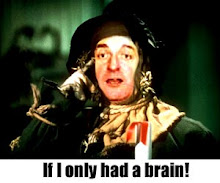Presdigitating! Prestigious! The Prestige

The Prestige: Watch Carefully!
I really wanted to write about the 'Watchmen' film adaptation, but having just finished reading 'The Prestige' I have to comment on that first.
Despite being a 'Hollywood blockbuster' I know precious few people who have actually watched the movie, 'The Prestige', starring Christian Bale and Hugh Jackman and directed by Batman's Christopher Nolan. That bewilders me a little as, despite a 'twist' you can see a mile of, it is a wonderfully entertaining piece of filmmaking. Certainly it has weaknesses, but there are too many wonderful ideas going on and such an appropriate atmosphere, that I have to confess to watching it several times now.
Christopher Priest, the author of the novel on which it is based, is an interesting sci-fi writer. He was appointed the Vice-President of the international H. G. Wells Society and, with 'The Space Machine', wrote a fun homage to the master. However, he has also visited darker more psychological territory in his time, as with his 'A Dream of Wessex' and 'Fugue for a Darkening Island'. I was intrigued to see what his original novel was like.
Firstly, and in total contrast to 'Watchmen', the movie is very different to the novel. I had expected this to an extent, having read that the novel dealt with the magicians' descendents as well as the turn-of-the-century milieu inhabited by rival conjurors Rupert Angier and Alfred Borden. But the extent to which they differ is amazing, particularly as both works stand strong on their own merits. In many ways, Nolan did an excellent job taking many of the most arresting elements of the book and staying true to its spirit. In the process he disguised flaws and emphasised themes that catch the imagination. The novel, with a longer time frame, and a wilder storyline, nevertheless has a few tricks up its sleeve.
With regard to similarities first, the two main plot contrivances, one biological, one technological, are still in the book. As a result of a dark encounter in their past (a different cause here from the film), two turn-of-the-century magicians, Alfred Borden and Rupert Angier, become deadly rivals. One sabotages the other's performance, the other retaliates. When Alfred Borden achieves an apparently impossible trick, transporting himself from one location to another practically instantaneously, his rival strives in his way to replicate this feat. Ultimately he does, but with bizarre consequences.
The feud between the rivals is far richer and more convoluted in Priest's work. The weaknesses of both contrivances are also easier to discern. Borden's deception is very clear from the outset, but Angier's analysis of the situation shows just how crazy, and impossible, Borden's lifestyle is. However, the device devised by real-life scientist, Nikola Tesla is the devil and the angel of this piece. Put simply Tesla's device is perhaps the greatest fantasy invention ever invented. Yet in the novel not only does Tesla knock it up in a couple of weeks, but he, and practically everyone else, fails to see the importance of the discovery. In the book the financial possibilities of the device are hinted at (something the movie wisely left out of the picture, concentrating instead on the Gothic effect), but these possibilities serve to highlight just how ludicrous a plot that sees such a device used purely for 'magical' purposes truly is. Indeed Tesla refuses to explore these possibilities, possibilities that could produce unlimited wealth, apparently on moral grounds, despite having to 'disappear' to avoid creditors. Priest paints a fairly convincing portrait of late Victorian naivete, but that cannot excuse the blindness of all concerned.
Nevertheless there is much to applaud here. The ideas being thrown around, doubles and duplicity, living a lie and lies living, are all concepts beloved of late 20th Century culture, and Priest handles them in a fresh way, combining fantasy, science and Gothic Horror to do so. Priest is an exceptional writer, and he does approach the possibilities his themes offer in terms of literary conceits, but ultimately he never engages properly on this level. This is to the novel's detriment, but still makes for a more lively and entertaining narrative. The epistolary nature of the novel (it is made up of journals and first-person accounts) allows Priest to cloud the veracity of many events in the tale, leaving the reader to choose the truth, to take sides depending on their own loyalties. What is remarkable is how fairly he portrays each of his antagonists. Given our omniscient perspective we reach the conclusion these two enemies would have been far better as friends much earlier than either of the rivals. Given the completely different storylines, it seems strange that 'Wuthering Heights' somehow came to my mind as a comparable work, but with that epistolary structure, the melodrama and the sense of the crimes of the father being visited upon the children, it's probably not that strange after all. And then there's that ending in the crypt.
That sealed it for me. Yes, the plot has holes; yes, there are missed opportunities in terms of literary complexity; and yes, some questions are left unanswered; but that ending was masterfully chilling. The final section, 'The Prestiges', manages to bring the hokey supernatural elements hovering at the edges, the science and the feud all together in one wonderfully sustained passage of ambiguous, and touching, horror. Of all the 'Wuthering Heights' elements, that put me most in mind of Catherine's ghostly appearance near the start of that novel. I mean a crypt lit by electric lightbulbs should not be so affecting, but Priest shows us that even in the 'Modern Age' some feelings (and some prejudices) are hard to dispel. Magical stuff that makes those few flaws just vanish. Just like that!
Labels: Christopher Nolan, Christopher Priest, Fantasy, Film, Science Fiction


0 Comments:
Post a Comment
<< Home